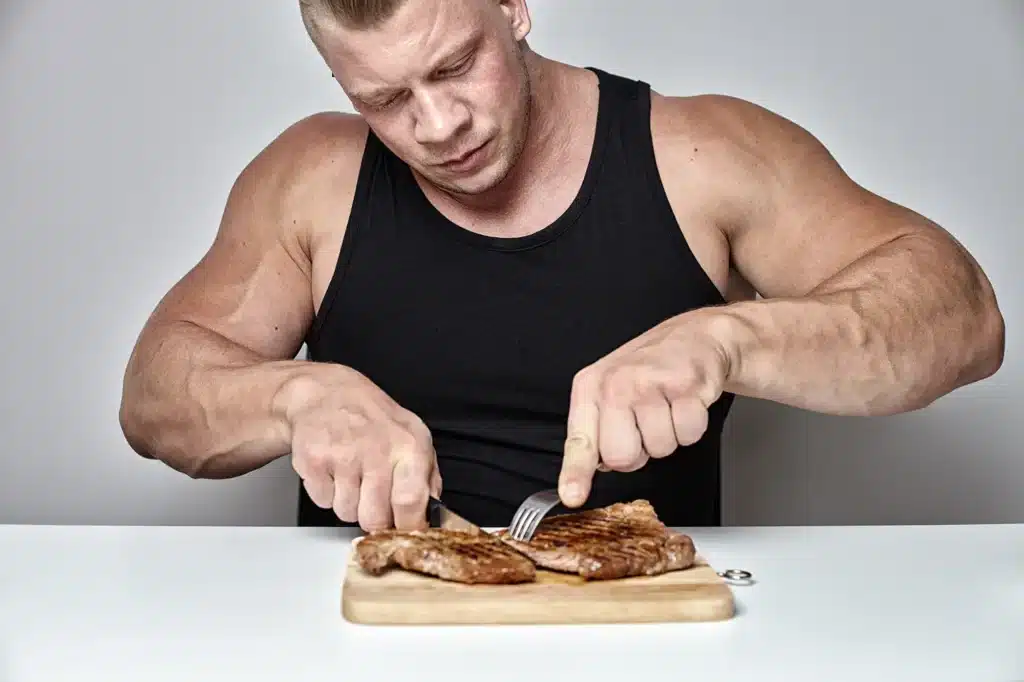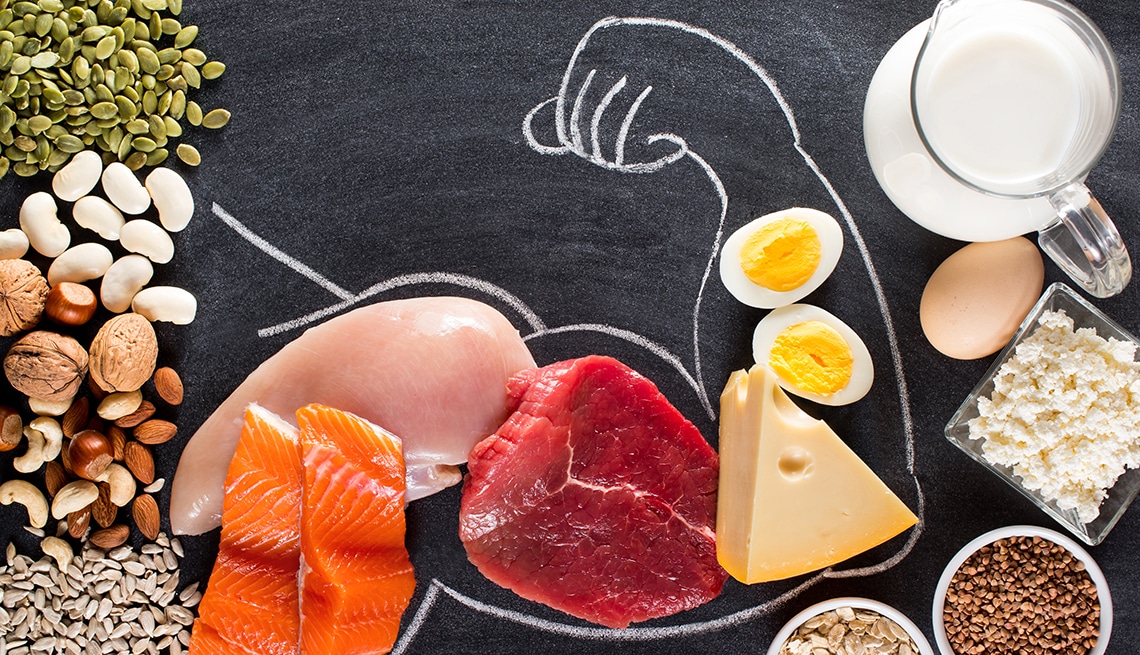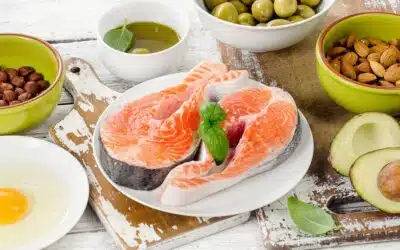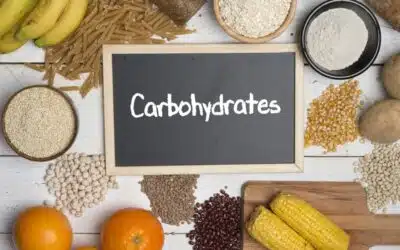In the quest for a healthier, stronger physique, understanding the role of protein in muscle building is crucial. Often hailed as the building block of muscles, protein stands at the forefront of fitness and nutrition discussions. But why is protein so vital? In this article, we delve into the power of protein, unraveling its importance in muscle development and overall health.
From gym enthusiasts to professional athletes, the emphasis on protein consumption has grown significantly. It’s not just about consuming protein; it’s about understanding its impact, how much your body needs, and the best sources to include in your diet. We will explore the fundamental aspects of protein, from its basic definition to its critical role in muscle repair and growth. We’ll also navigate through the maze of dietary recommendations to determine the optimal protein intake for various lifestyles.
Moreover, this article will highlight the best protein sources, comparing animal-based and plant-based options, and discuss the optimal timing for protein consumption to maximize muscle growth. Beyond muscle building, we’ll shed light on the other health benefits of protein, including its effects on metabolism, weight management, and overall body health.
Whether you’re aiming to bulk up, tone your muscles, or simply enhance your diet for better health, this comprehensive guide offers valuable insights into the power of protein. So, let’s embark on this journey to understand why protein is a cornerstone in the world of health and fitness.
Protein Basics: What is Protein and Why is it Crucial for Muscle Building?
Understanding Protein’s Role in Muscle Repair and Growth
Protein, a macronutrient composed of amino acids, is essential for the growth and repair of muscle tissue. When you engage in physical activities, especially strength training, your muscle fibers undergo microscopic damage. This damage triggers the body’s repair process, where proteins play a vital role. The amino acids in protein act as the building blocks for new muscle tissue, facilitating both repair and growth.
The process of muscle protein synthesis (MPS) is particularly crucial. MPS is the body’s way of repairing and rebuilding muscle fibers by utilizing the amino acids derived from protein. This process not only helps in muscle recovery post-exercise but also contributes to the hypertrophy, or growth, of muscle tissue.
Moreover, protein is involved in various bodily functions, from enzyme production to hormone regulation, which indirectly supports muscle health and development. Without adequate protein, your body can’t effectively repair and grow muscle fibers, leading to decreased strength and muscle mass.
Types of Protein: Complete vs. Incomplete Sources
Proteins are classified into two categories: complete and incomplete. Complete proteins contain all nine essential amino acids that the body cannot synthesize on its own. These are typically found in animal products like meat, poultry, fish, eggs, and dairy. For individuals following a plant-based diet, quinoa and soy products are notable exceptions as they are complete plant-based proteins.
On the other hand, incomplete proteins lack one or more of these essential amino acids. These are commonly found in plant sources like beans, nuts, and whole grains. However, by combining different plant-based proteins (like rice and beans), one can create a complete protein profile, ensuring the intake of all essential amino acids.
In conclusion, understanding the role of protein in muscle building is fundamental for anyone looking to enhance their physical fitness and overall health. The right balance of protein intake, coupled with an understanding of different protein sources, can significantly impact muscle growth and recovery.
Protein Intake: How Much Protein Do You Really Need?

Recommended Dietary Allowances (RDA) for Different Activity Levels
Determining the right amount of protein intake is essential for muscle building and overall health. The Recommended Dietary Allowance (RDA) for protein for the average adult is 0.8 grams per kilogram of body weight. However, this amount varies depending on one’s activity level. For those engaged in regular strength training or bodybuilding, the protein needs may increase to 1.2 to 2.0 grams per kilogram to support muscle repair and growth.
It’s crucial to tailor your protein intake based on your physical activity level and fitness goals. Athletes or highly active individuals require more protein than sedentary people due to the increased muscle repair and growth demands from intense workouts. Nonetheless, it’s important to avoid excessive protein intake, which can strain the kidneys over time and may lead to dehydration.
The Balance Between Protein Intake and Muscle Building
Balancing your protein intake with other nutrients is key to effective muscle building. While protein is essential for muscle growth, carbohydrates and fats also play vital roles in overall nutrition and energy provision. Carbohydrates are particularly important as they provide the energy needed for workouts and daily activities.
Moreover, the timing of protein consumption can influence muscle growth. Consuming protein-rich foods or supplements post-workout can enhance muscle recovery and growth. The idea is to provide the body with the necessary building blocks for muscle repair at the right time.
In conclusion, the optimal protein intake for muscle building is a balance that considers individual activity levels, dietary needs, and overall health goals. By understanding and applying these principles, one can maximize the benefits of protein for muscle growth and overall well-being.
Best Protein Sources for Muscle Growth
Animal-Based vs. Plant-Based Protein Sources
When it comes to building muscle, the quality of protein sources matters. Animal-based proteins, such as meat, poultry, fish, eggs, and dairy, are considered high-quality proteins because they provide all the essential amino acids in the right proportions. For instance, chicken breast, lean beef, and salmon are not only rich in protein but also contain vital nutrients like B vitamins, iron, and omega-3 fatty acids.
Plant-based proteins, on the other hand, can also support muscle growth effectively. Foods like lentils, chickpeas, tofu, and quinoa are excellent sources of protein for vegetarians and vegans. While most plant proteins are incomplete, meaning they lack one or more essential amino acids, combining different plant-based protein sources can provide a complete amino acid profile. For example, rice and beans eaten together form a complete protein.
Top Protein-Rich Foods for Muscle Building
- Chicken Breast: A staple in many athletes’ diets, chicken breast is lean and high in protein, perfect for muscle repair and growth.
- Salmon: Rich in omega-3 fatty acids, salmon can reduce muscle inflammation and support recovery.
- Eggs: Containing all nine essential amino acids, eggs are an excellent source of complete protein.
- Greek Yogurt: A dairy product that’s high in protein and also contains beneficial probiotics.
- Tofu: A versatile plant-based protein that can be a key part of a muscle-building diet.
- Lentils: High in protein and fiber, lentils are great for both muscle growth and digestive health.
- Quinoa: A complete protein that’s also a good source of fiber and minerals.
In conclusion, incorporating a variety of protein sources, both animal and plant-based, can ensure a balanced intake of essential nutrients necessary for muscle growth. Understanding and choosing the right protein sources is pivotal in achieving fitness goals and maintaining overall health.
Timing Your Protein: When to Consume Protein for Optimal Muscle Growth
The Significance of Protein Timing Post-Workout
The timing of protein intake is crucial for muscle growth, especially post-workout. Consuming protein shortly after exercise helps stimulate muscle protein synthesis, the process that helps repair and build muscle tissues. This is often referred to as the “anabolic window,” a period when your muscles are particularly receptive to nutrients. A protein shake or a meal containing high-quality protein within 30 to 45 minutes after a workout can significantly enhance muscle recovery and growth.
The Role of Protein in Recovery During Sleep
Protein intake isn’t only crucial post-workout but also plays a vital role in muscle recovery during sleep. Consuming a protein-rich snack before bed, such as Greek yogurt or a casein protein shake, can provide a slow release of amino acids throughout the night. This sustained protein delivery helps in continuous muscle repair and growth while you sleep, making it an essential aspect of a muscle-building diet.
Beyond Muscle Building: Other Health Benefits of Protein

Protein’s Impact on Metabolism and Weight Management
Protein has a higher thermic effect than fats or carbohydrates, meaning the body uses more energy to digest and metabolize it. This increased metabolic rate can aid in weight loss and management. Additionally, protein-rich foods are generally more satiating, reducing the likelihood of overeating and helping in maintaining a healthy weight.
Protein’s Role in Overall Body Health and Immune Function
Apart from muscle building, protein plays a crucial role in overall body health. It’s essential for the repair and maintenance of all body tissues, including skin, organs, and bones. Proteins also form antibodies that help fight infections, playing a critical role in immune function.
In conclusion, the strategic timing of protein consumption can greatly enhance muscle growth and recovery. Alongside its muscle-building properties, protein’s role in metabolism, weight management, and overall health underscores its importance in a balanced diet.
Following a Fitness Meal Plan is a blueprint for achieving fitness goals. By carefully selecting a balance of proteins, carbohydrates, and healthy fats, along with plenty of fruits and vegetables, having a structured approach supports muscle growth, energy levels, and post-workout recovery, which is very important for active people.
Conclusion
The journey through “The Power of Protein: Understanding the Importance of Protein for Muscle Building” illuminates the multifaceted role of protein in our lives. From its critical function in muscle repair and growth to its influence on metabolism and overall health, protein emerges as a key nutrient in our diet. The exploration of different protein sources, both animal-based and plant-based, underscores the versatility of protein in catering to diverse dietary preferences and needs.
We’ve also highlighted the significance of protein timing, especially post-workout and during sleep, to optimize muscle growth and recovery. Beyond muscle building, we delved into the broader health benefits of protein, including its role in weight management and immune function.
In essence, this guide serves not just as a resource for athletes and fitness enthusiasts but for anyone looking to enhance their health through nutrition. The right balance of protein intake, coupled with an understanding of its various sources and the optimal timing of consumption, can significantly impact one’s physical and overall well-being.
As you incorporate these insights into your lifestyle, remember that nutrition is a personal journey. Tailoring protein intake to your individual needs and goals is key. May this guide serve as a stepping stone towards a healthier, stronger, and more balanced you.












